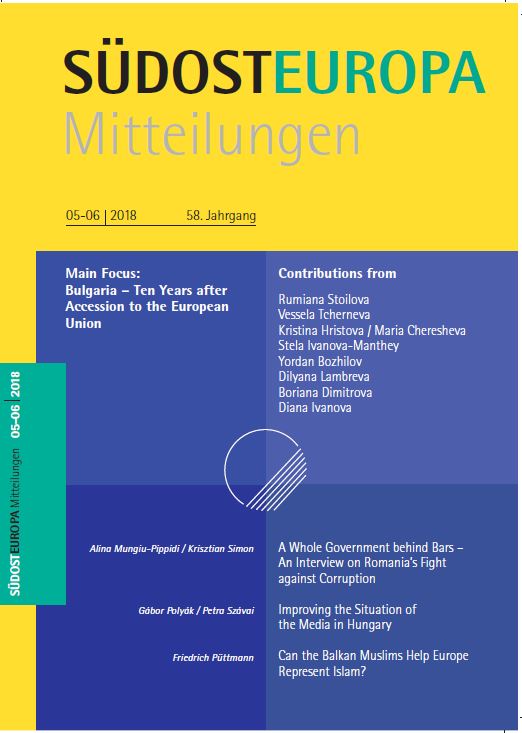The Bulgarian Society: Changes and Barriers after Ten Years of EU Membership
The Bulgarian Society: Changes and Barriers after Ten Years of EU Membership
Author(s): Rumiana StoilovaSubject(s): Politics / Political Sciences, Social Sciences
Published by: Südosteuropa Gesellschaft e.V.
Keywords: Bulgaria; Bulgarian society; EU Membership; Changes; Barriers
Summary/Abstract: The article presents results about Bulgaria taken from different international comparative public opinion surveys and indexes. They have been formed both on the basis of subjective assessments as well as of objective data. The international comparisons highlight the chances and barriers connected with Bulgaria’s EU membership for the social groups located at the bottom, top and middle tiers of the income structure in society. Major emphasis is put on the occupational perspective, which presents different chances for the prosperity of people actively participating in the labour market. The major risks for Bulgaria with EU membership are connected to poverty, especially among low educated and low qualified people thus increasing inequalities, which place the country at the bottom of the EU’s Social Justice Index. The free movement of people is on the one hand a chance for Bulgarian citizens, and on the other hand a barrier for the further development of the democratic society because of the brain drain. The chances of success for small and medium-sized Bulgarian businesses are restricted in a number of cases by large-scale business. This influence is a barrier to Bulgaria’s sustainable development in which citizens, the state and businesses should take part in an equal and more transparent way.
Journal: Südosteuropa Mitteilungen
- Issue Year: 2018
- Issue No: 05-06
- Page Range: 8-19
- Page Count: 12
- Language: English
- Content File-PDF

